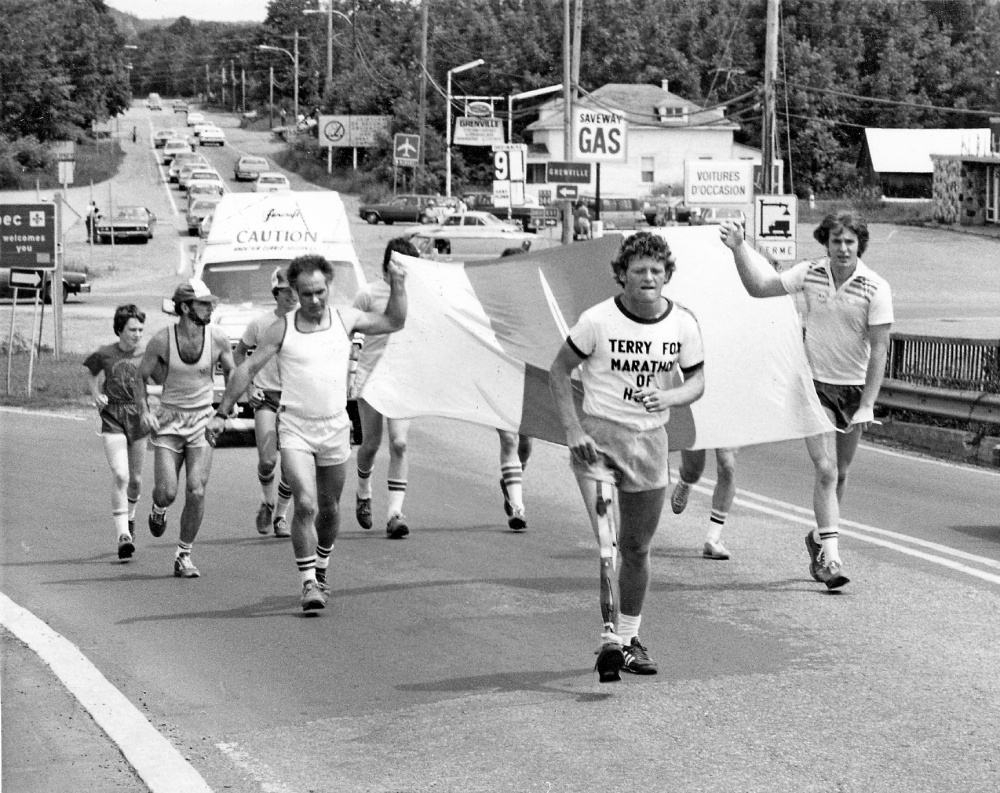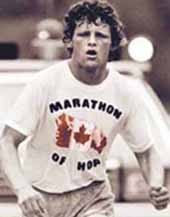Sept 19 Page SBTest 1

The night before his right leg was amputated, Terry Fox read about an amputee who ran the New York City Marathon. The article inspired Terry's Marathon of Hope, an incredible cross-Canada run on an artificial leg to raise money for cancer research. Terry was forced to end his run when his cancer returned. He died on June 28, 1981, but his legacy lives on in the annual Terry Fox Run.
A Single Dream. A World of Hope.
 In 1980, he began the Marathon of Hope, a cross-country run to raise money for cancer research. Fox hoped to raise one dollar for each of Canada's 24 million people. He began with little fanfare from St. John's, Newfoundland, in April and ran the equivalent of a full marathon every day. Fox had become a national star by the time he reached Ontario; he made numerous public appearances with businessmen, athletes, and politicians in his efforts to raise money.
In 1980, he began the Marathon of Hope, a cross-country run to raise money for cancer research. Fox hoped to raise one dollar for each of Canada's 24 million people. He began with little fanfare from St. John's, Newfoundland, in April and ran the equivalent of a full marathon every day. Fox had become a national star by the time he reached Ontario; he made numerous public appearances with businessmen, athletes, and politicians in his efforts to raise money.
It was all about effort for Terry. He challenged himself every day with one goal in mind: raise the most money he could to end cancer.
He was forced to end his run outside of Thunder Bay when the cancer spread to his lungs. His hopes of overcoming the disease and completing his marathon ended when he died nine months later.
Fox was the youngest person ever named a Companion of the Order of Canada. He won the 1980 Lou Marsh Award as the nation's top sportsman and was named Canada's Newsmaker of the Year in both 1980 and 1981. Considered a national hero, he has had many buildings, roads and parks named in his honour across the country.
National Response
Fox had raised $1.7 million by the time he was forced to abandon the Marathon. He realized that the nation was about to see the consequences of the disease, and hoped that this might lead to greater generosity. A week after his run ended, the CTV Television Network organized a nationwide telethon in support of Fox and the Canadian Cancer Society. Supported by Canadian and international celebrities, the five-hour event raised $10.5 million. Among the donations were $1 million each by the governments of British Columbia and Ontario, the former to create a new research institute to be founded in Fox's name, and the latter an endowment given to the Ontario Cancer Treatment and Research Foundation. Donations continued throughout the winter, and by the following April, over $23 million had been raised.
